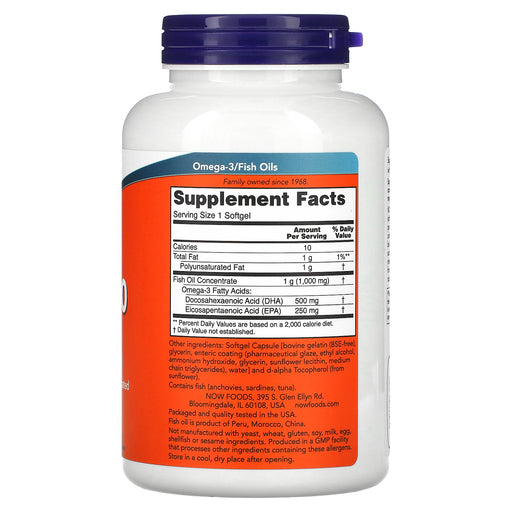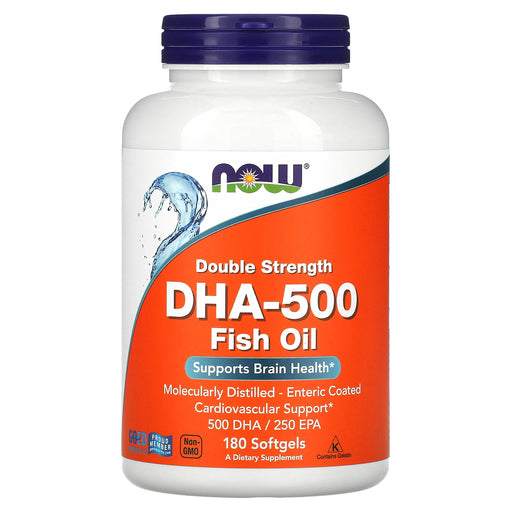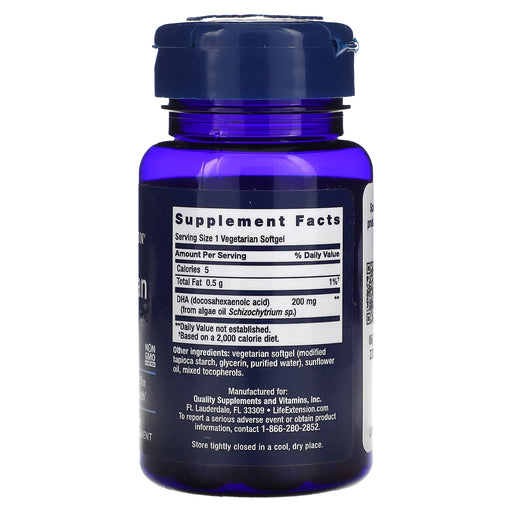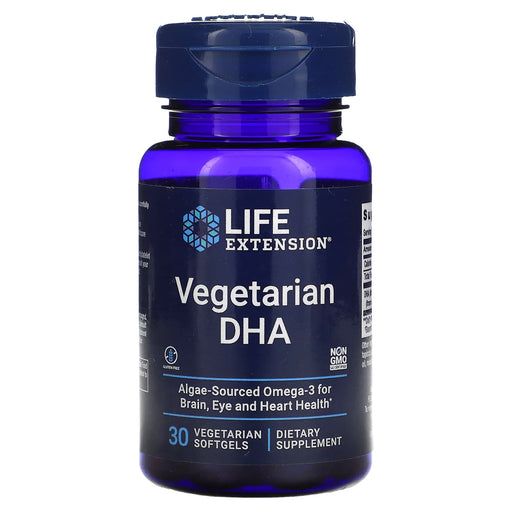
Elevate Your Brain Function and Eye Health with DHA Supplements
Docosahexaenoic acid (DHA) is a crucial omega-3 fatty acid that plays a vital role in brain development, cognitive function, and eye health. While the body can synthesize small amounts of DHA from other omega-3 fatty acids, the most efficient way to ensure optimal levels is through dietary intake or supplementation. By incorporating DHA supplements into your wellness routine, you can support your brain and eye health, as well as overall well-being.
Understanding the Importance of DHA
DHA is a long-chain polyunsaturated fatty acid (PUFA) that is primarily found in fatty fish, algae, and certain fortified foods. It is a key structural component of the brain, nervous system, and retina, and plays a vital role in various physiological processes, including:
- Brain Development: DHA is essential for proper brain development during pregnancy and early childhood, supporting cognitive function, learning, and memory.
- Cognitive Function: Adequate DHA levels are associated with better cognitive performance, mental clarity, and overall brain health throughout life.
- Eye Health: DHA is a major structural component of the retina, and sufficient intake is crucial for maintaining healthy vision and reducing the risk of age-related eye disorders.
- Cardiovascular Health: DHA, along with other omega-3 fatty acids like EPA, supports heart health by promoting healthy blood lipid levels, reducing inflammation, and supporting healthy blood vessel function.
- Immune Function: DHA plays a role in regulating immune function and may help support the body's natural defenses against inflammation and oxidative stress.
While DHA can be obtained through dietary sources, many people may not consume enough fatty fish or algae to achieve optimal levels. This is where DHA supplements can help bridge the gap and ensure adequate intake for brain, eye, and overall health.
Benefits of DHA Supplementation
Incorporating DHA supplements into your wellness routine may offer several potential benefits, including:
- Enhanced Cognitive Function: DHA supplements can help support cognitive performance, mental clarity, and memory, particularly in older adults or those with age-related cognitive decline.
- Improved Brain Development: Adequate DHA intake during pregnancy and early childhood is crucial for proper brain development, and supplementation may help support optimal cognitive function and learning abilities.
- Better Eye Health: DHA supplements can help maintain healthy vision and reduce the risk of age-related eye disorders, such as macular degeneration and dry eye syndrome.
- Cardiovascular Support: DHA, along with other omega-3s, may help support heart health by promoting healthy blood lipid levels, reducing inflammation, and supporting healthy blood vessel function.
- Enhanced Immune Function: DHA's role in regulating immune function may help support the body's natural defenses against inflammation and oxidative stress, promoting overall health and well-being.
Choosing the Best DHA Supplement
When selecting a DHA supplement, it's essential to choose a high-quality product from a trusted brand. Consider the following factors:
- Source of DHA: DHA supplements can be derived from fish oil or algae. If you follow a vegan or vegetarian lifestyle, opt for algae-based DHA supplements to ensure a plant-based source.
- Purity and Quality: Look for supplements that are third-party tested for purity, potency, and the absence of contaminants like heavy metals, PCBs, and dioxins.
- Concentration and Dosage: Choose supplements that provide an effective daily dose of DHA, typically ranging from 200-1000 mg, depending on your age, health status, and specific needs.
- Bioavailability: Consider supplements that use advanced delivery forms, such as emulsified or liposomal DHA, to enhance absorption and bioavailability.
- Brand Reputation: Select supplements from reputable brands with a history of producing high-quality, science-backed products and a commitment to transparency and sustainability.
Tips for Incorporating DHA Supplements into Your Wellness Routine
To maximize the benefits of DHA supplements and support your brain, eye, and overall health, consider the following tips:
- Pair with a Balanced Diet: While DHA supplements can help ensure adequate intake, they should be used in conjunction with a balanced diet rich in whole foods, including fatty fish, nuts, seeds, and leafy greens.
- Take with Food: To enhance absorption and reduce the risk of digestive discomfort, take DHA supplements with a meal that contains some fat.
- Be Consistent: To maintain optimal DHA levels and experience the full potential benefits, take your supplement consistently as directed, typically once or twice daily.
- Consider Combination Formulas: Look for supplements that provide a balanced ratio of DHA and EPA, another essential omega-3 fatty acid, for comprehensive health support.
- Consult with a Healthcare Professional: If you have any pre-existing health conditions, are pregnant or nursing, or are taking medications, consult with a healthcare professional before starting a DHA supplement regimen.
Elevate Your Brain and Eye Health with DHA Supplements from Health Orchard
Support your cognitive function, visual acuity, and overall well-being with Health Orchard's selection of top-quality DHA supplements. Our carefully curated collection features a range of options to suit your individual needs and preferences, from pure fish oil to vegan-friendly algae-based formulas.
Experience the brain-boosting, eye-protecting benefits of this essential omega-3 fatty acid and give your body the support it needs to thrive. With a commitment to quality, purity, and efficacy, Health Orchard is your trusted source for the best DHA supplements on the market. Explore our collection today and take the first step towards elevating your health and vitality.
Frequently Asked Questions about DHA
1. What is DHA supplement good for?
DHA (Docosahexaenoic acid) is an omega-3 fatty acid that plays a crucial role in various aspects of health. DHA supplements are beneficial for:
- Brain development and function: DHA is a major structural component of the brain and is essential for cognitive development, memory, and learning
- Eye health: DHA is found in high concentrations in the retina and is important for visual development and function
- Heart health: DHA helps reduce inflammation, lower blood pressure, and decrease the risk of heart disease and stroke
- Pregnancy and fetal development: Adequate DHA intake is essential for the proper development of the fetal brain, eyes, and nervous system
- Mental health: DHA has been linked to a reduced risk of depression, anxiety, and other mood disorders
- Inflammatory conditions: DHA has anti-inflammatory properties and may help alleviate symptoms of inflammatory conditions such as rheumatoid arthritis and asthma
2. Is it safe to take DHA every day?
Yes, it is generally safe to take DHA supplements every day, as long as you adhere to the recommended dosage instructions. The American Heart Association recommends consuming at least 250-500 mg of combined EPA and DHA per day for general health.
3. What is the best source of DHA?
The best sources of DHA are:
- Fatty fish: Cold-water fatty fish such as salmon, mackerel, tuna, herring, and sardines are excellent natural sources of DHA
- Algae: Certain types of algae, such as Schizochytrium sp., are rich in DHA and are used to produce vegetarian DHA supplements
- Fortified foods: Some foods, such as eggs, milk, and yogurt, may be fortified with DHA
- Supplements: DHA supplements are available in various forms, including fish oil, krill oil, and algae-based oils for vegetarians and vegans
4. What are the benefits of DHA tablets?
DHA (Docosahexaenoic acid) tablets offer several health benefits:
- Brain health: DHA is a major structural component of the brain and supports cognitive function, memory, and learning
- Eye health: DHA is essential for visual development and function, particularly in infants and children
- Heart health: DHA helps reduce inflammation, lower blood pressure, and decrease the risk of heart disease and stroke
- Pregnancy and fetal development: Adequate DHA intake supports the proper development of the fetal brain, eyes, and nervous system
- Mental health: DHA has been linked to a reduced risk of depression, anxiety, and other mood disorders
- Inflammatory conditions: DHA's anti-inflammatory properties may help alleviate symptoms of inflammatory conditions such as rheumatoid arthritis and asthma
- Convenient supplementation: DHA tablets provide a convenient way to ensure adequate intake, especially for those who do not consume enough fatty fish or other DHA-rich foods
5. Who should not take DHA supplements?
While DHA supplements are generally safe for most people, there are certain individuals who should exercise caution or avoid taking them without consulting a healthcare professional:
- People with bleeding disorders or taking blood-thinning medications: DHA and other omega-3s may increase the risk of bleeding, so it is essential to consult with a healthcare provider before starting a supplement regimen
- Individuals with fish or shellfish allergies: Some DHA supplements are derived from fish or shellfish sources, so those with allergies should choose algae-based DHA supplements or consult with their healthcare provider to ensure the supplement is safe for them to consume
- People with certain medical conditions: Individuals with diabetes, liver disease, or other medical conditions should consult with their healthcare provider before taking DHA supplements, as the supplements may interact with their condition or medications
- Pregnant and breastfeeding women: While DHA is essential for fetal and infant development, pregnant and breastfeeding women should consult with their healthcare provider to determine the appropriate dosage and ensure the supplement is safe for their specific needs
- Children: Parents should consult with a pediatrician before giving DHA supplements to children, as the appropriate dosage may vary depending on the child's age and health status
6. When should I take DHA morning or night?
The timing of when to take DHA supplements, whether in the morning or at night, is not as important as maintaining consistency in your supplementation routine. However, some factors to consider:
- With meals: Taking DHA supplements with a meal that contains some fat can improve absorption, as DHA is a fat-soluble nutrient
- Consistency: Aim to take your DHA supplement at the same time each day to establish a routine and ensure you don't forget to take it
- Personal preference: Some people may find that taking DHA supplements at night helps them avoid fishy burps or digestive discomfort that can occasionally occur with fish oil supplements
- Interactions with medications: If you are taking any medications that need to be taken at specific times, consult with your healthcare provider to ensure that the timing of your DHA supplement does not interfere with your medication schedule
Ultimately, the most important factor is to take your DHA supplement regularly, as directed by your healthcare provider or the product label, to ensure you are receiving the optimal benefits for your health.
7. What is the side effect of DHA?
While DHA supplements are generally well-tolerated, some people may experience side effects. Common side effects of DHA include:
- Digestive discomfort: Some people may experience mild gastrointestinal symptoms such as bloating, diarrhea, or stomach upset
- Fishy burps or aftertaste: Fish oil supplements, which are a common source of DHA, can sometimes cause a fishy taste or odor
- Nausea: Some individuals may feel nauseous after taking DHA supplements, particularly if they take them on an empty stomach
- Headache: In rare cases, some people may experience headaches when starting a DHA supplement regimen
- Bleeding risk: DHA and other omega-3s can thin the blood, which may increase the risk of bleeding, especially in individuals with bleeding disorders or those taking blood-thinning medications
- Allergic reactions: People with fish or shellfish allergies may experience allergic reactions to DHA supplements derived from these sources












